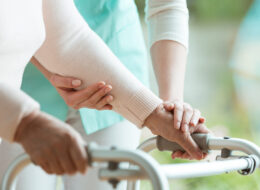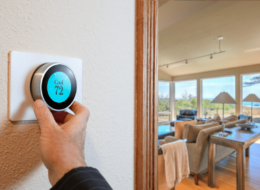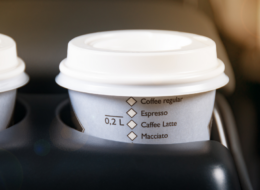Staying hydrated is essential for a senior’s health, but some elderly individuals struggle to drink enough liquids throughout the day. If you’re a caregiver or family member of an elderly loved one who needs to increase their liquid intake, you may need to provide them with fluids in different ways, such as via fruit juice, increased vegetable intake, straws, or unique cups and drinking glasses.
In this article, we’ll share a list of hacks about how to encourage an elderly individual to drink more water!
With some time, patience, and encouragement you should be able to find some techniques to ensure your loved one will be able to drink enough water each day to stay healthy.
Tips & Strategies to Get an Elderly Person to Drink Water
Let’s jump right into our nineteen hacks for how to encourage an elderly individual to drink more water and stay better hydrated, even if they’re not normally a fan of H20.
1. If a Senior Doesn’t Like Water, Offer a Liquid They Do Like!
If a senior doesn’t want to drink water, try offering some other fluids to see if they’ll drink them. Some of the best options include:
- Herbal teas
- Coconut water (hydrating and full of electrolytes)
- Skim milk
- Tomato juice (don’t overdue it, as the acidity can be harsh for some)
- Fruit juice (apple, prune, grape, or orange juice are great options, but be careful of sugar intake)
- Pedialyte
- Decaffeinated coffee (and while caffeinated coffee isn’t ideal, it’s fine in moderation as well)
- Diet soda (in moderation)
- Diet Gatorade (or other diet sports drinks)
Avoid grapefruit juice, as it has the potential to conflict with certain medications. Also, avoid drinks that are very caloric and contain a lot of sugar or salt.
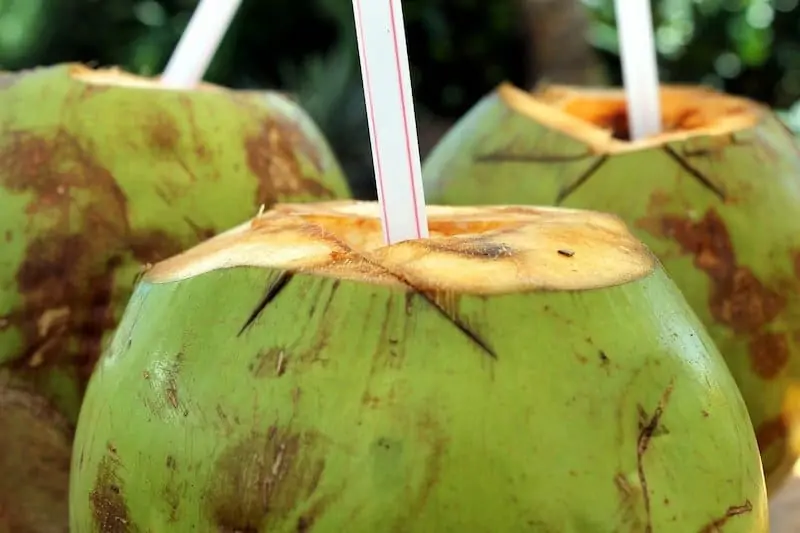
2. Offer Foods with a High Water Content
If a senior doesn’t like to drink liquids, consider offering them foods with a high water content! Some of the best options include:
- Watermelon, grapes, and other fruit
- Cucumber slices
- Celery sticks
- Carrot sticks
- Sliced bell peppers
- Sliced Apples
- Blueberries
- Iceberg lettuce
- Low-sodium soups and broths
- Gazpacho
For the vegetables, you could also offer a healthy salad dressing or some hummus for dipping the veggies into as a tasty snack!
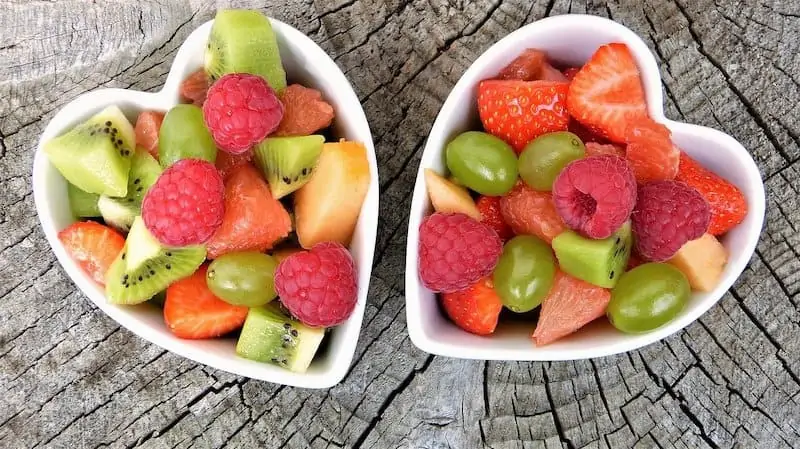
3. Make Drinks Look More Enticing and Fun
Some fussy seniors might be convinced to drink more liquids if the drink looks like a fancy treat!
To make drinks look more enticing, you can pretty them up with bits of fruit, garnishes, and extra color (such as with a splash of cranberry juice).
One good way to make a drink seem special is to add soda water and crushed ice if the person enjoys having their drink fizzy! This can make the senior feel like they are drinking a fun, celebratory mocktail rather than completing a chore.
You could also use a fun swirly straw, add a tropical umbrella, cover the top with a tasty rim, or serve in a special goblet or beautiful cup to elevate a boring drink to something special!
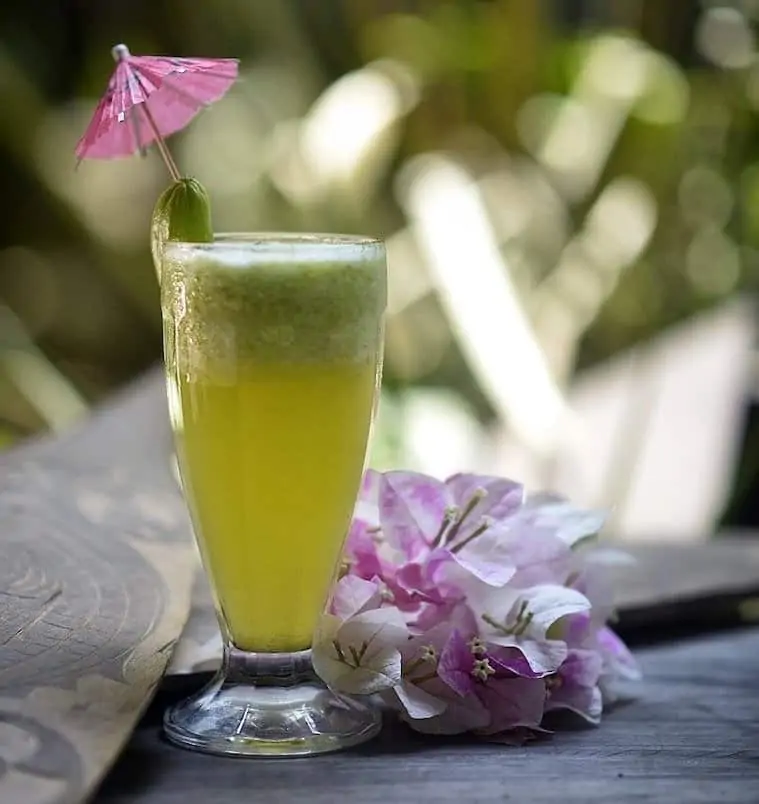
4. Make Some Popsicles
You may also want to consider giving a senior frozen popsicles or ice chips if they prefer that to drinking liquids.
Some elderly seniors may find they have better salivation and can more easily swallow ice chunks than pure liquids. You can even make your own popsicles at home with fruit juice and store-bought popsicle molds!

5. Add Flavor Plain Water
If a senior doesn’t want to drink plain water, try mixing it with a dash of juice or a flavored drink additive. Lemon juice is often a popular choice to add to water to make it a bit tastier. Just don’t overdo the lemon juice, as it’s highly acidic and can damage teeth over time.
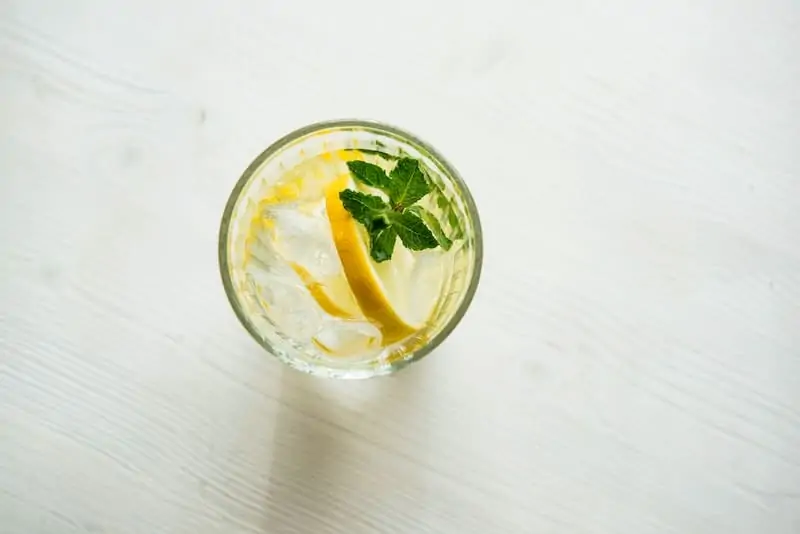
6. Add Cup Holders to The Senior’s Wheelchair
Lack of regular access to water is a big reason why many elderly individuals don’t drink enough water. If your loved one spends a lot of time in a wheelchair, you can make it easier for them to drink water by adding cup holders to the wheelchair!
Cup holders are inexpensive and usually easy to install. They’ll also help keep cups stable while the senior is on the go around their house! Consider adding velcro to the bottom of the cup and the cup holder to add more security.
Wheelchair tray tables are another potential option for adding a surface where a senior can easily rest and access their drink throughout the day.
7. Make Water More Appealing With a Straw
Some seniors have difficulty swallowing, and may have a hard time drinking liquids directly from a glass. Try giving the senior water with an easy-to-sip straw to help them drink more easily!
Experiment with different sizes and styles of straw to find one that works best for the specific individual’s preferences.
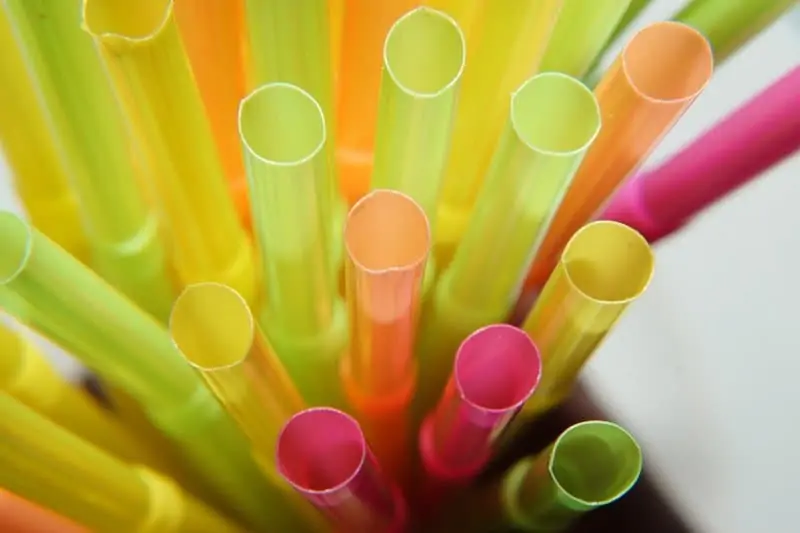
8. Offer Easy-to-Hold Water Bottles for Arthritic Hands
If your loved one has arthritis or weak hands and fingers, consider giving them a drink container that is easier for them to hold and grip safety.
You can find ergonomically designed, large-handled, easy-to-grip water bottles online as well as adult sippy cups which are perfect for seniors!
9. Create Hydration Goals
Help change the perspective of a senior’s fluid intake issues by presenting hydration goals you can both work on together!
Make a daily checklist of how much water or fluids should be consumed, and keep track of each other’s progress. This can be especially motivating for competitive seniors. You can even keep track of which days a senior meets their hydration goals by marking a star on the calendar and once a senior collects a certain number of stars, you can go out to a movie or a fancy dinner together!
There are even some water bottles that have specific markings to help a drinker meet specific fluid intake goals at various times of the day!
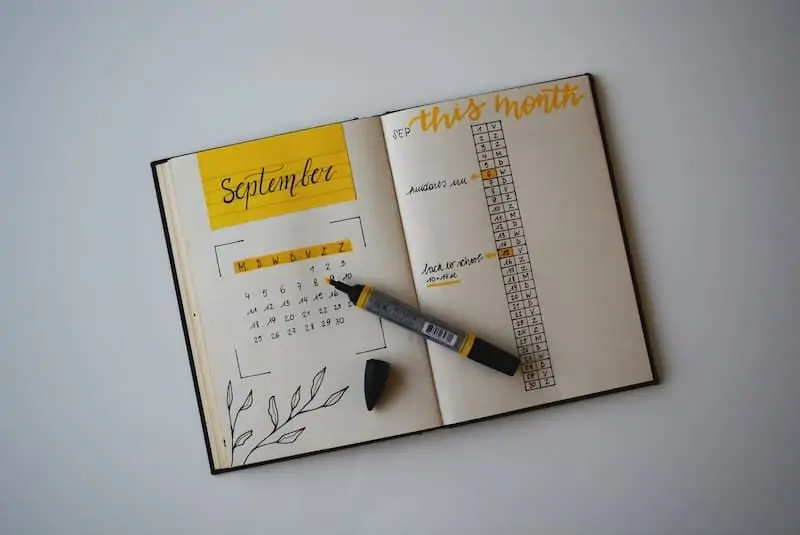
10. Feed a Senior Jello
Another way to encourage a senior to increase their fluid intake is by offering them Jello! Jello is 95% water, plus it’s easy to eat and swallow even for elderly individuals.
Sugar-free Jello may be the best option depending on a senior’s health.
11. Try Hydrating Sweet Balls
Another newer hack to help seniors drink more liquids is via “hydration balls.”
The most well-known iteration of these edible hydration balls is “Jelly Drops,” invented by a man in the UK for his grandmother with dementia after she suffered from extreme dehydration. They have been described as hydrating sweets, made from 95% water. Jelly Drops are expected to be available in the US at some point within 2021.
12. Try Specialized Lightweight Cups for Arthritis
If a senior is struggling to drink water because it’s too difficult to hold or lift a cup, try specialized light-weight cups designed for the elderly and disabled.
These kinds of specially designed lightweight cups will make lifting a cup easier on a senior’s limited hand strength. Some cups, like Nosey Cups, will even have a spout that has been cut out where a drinker’s nose normally hits the cup, allowing a senior to drink easily without needing to tip their head back as much.
13. Limit Alcohol Intake
Alcohol, despite being liquid, can actually dehydrate the body. Alcohol is a diuretic which means it causes your body to lose fluids. When seniors drink alcohol they may become dehydrated quicker, so make sure to limit alcohol consumption.
14. Try Smoothies
Certain seniors may prefer thicker smoothies over plain water, although some will struggle with a smoothie’s denser liquid.
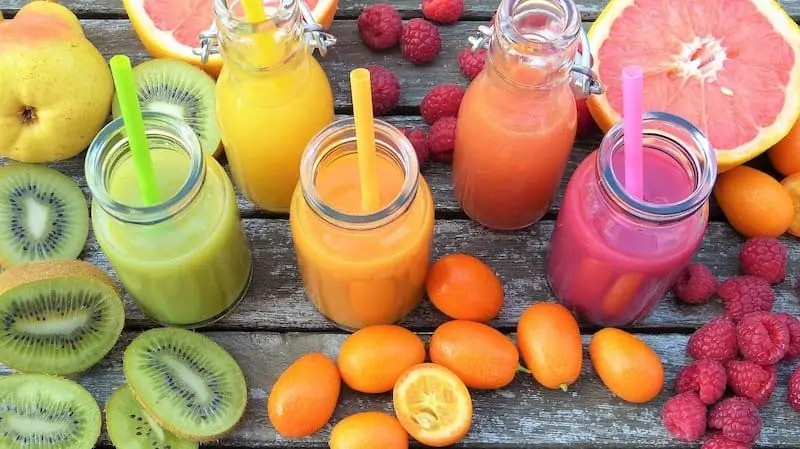
15. Offer Drinks Frequently
Try to offer an elderly loved one drinks as often as possible throughout the day. They likely won’t consume a lot of liquid in one go, but if you offer small amounts of liquid more frequently, they may be more likely to meet hydration goals.
16. Use a Water Filter
You may want to consider adding a water filter and see if cleaner, better-tasting water improves a senior’s drinking capacity. Some individuals are sensitive to taste and can’t stand to swallow down a glass of poor-tasting water.
A simple Brita water filter might do the drink, as they can make tap water taste much better.
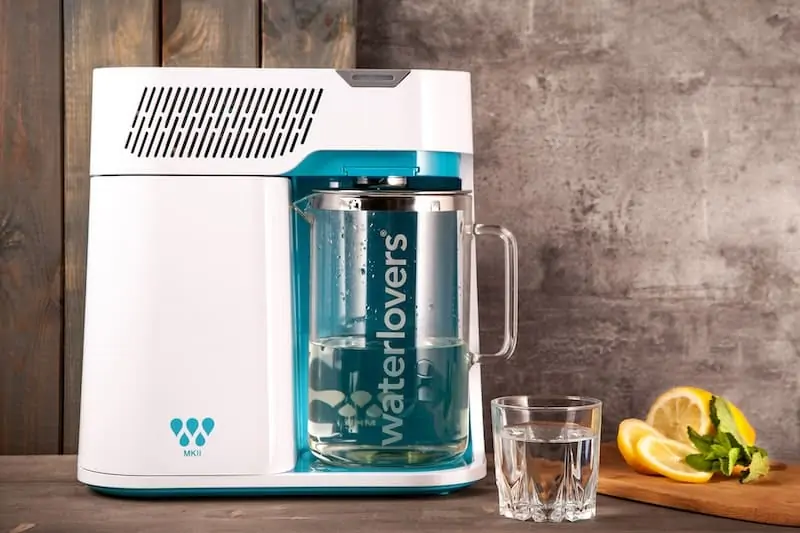
17. Keep Plenty of Water Within Easy Reach at All Times
Do your best to have an easy-to-access cup or bottle of water close by the senior at all times. This will make it easier for them to reach out and grab a drink if they want one.
Some seniors won’t bother to drink water if it means they have to call an attendant or trouble someone for help, so make sure the option to drink is always available.
18. Try Going Hotter or Colder
Sometimes, the temperature of a drink makes all the difference. If your loved one is struggling to swallow water down, try offering it warmer or colder instead. Some seniors can’t handle cold drinks and prefer something warmer to make swallowing easier on their throats.
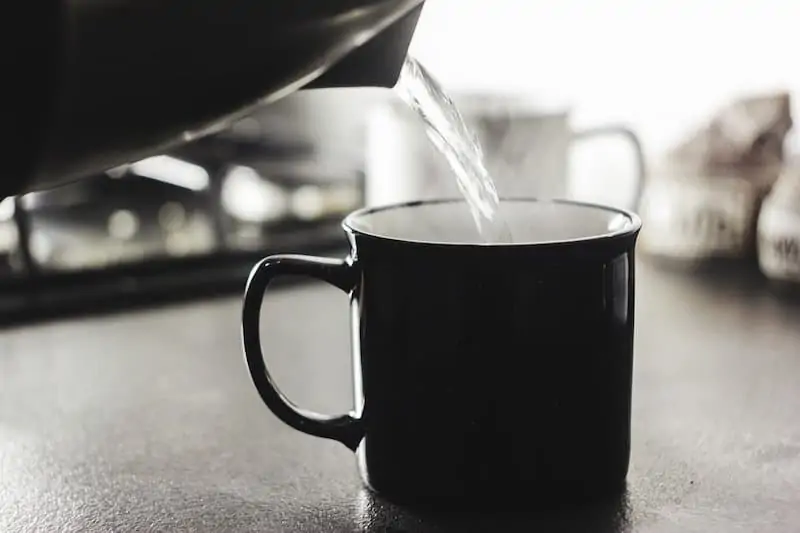
19. Don’t Force the Elderly Person to Drink Water
Of course, we know you only want what’s best for your elderly relative, but it’s important not to force them to drink water if they don’t want to. Nobody enjoys being forced into doing something they aren’t comfortable doing, and this includes drinking water (or any other beverage).
If you force a senior to drink (particularly if they have dementia), you could even end up causing them to develop anxiety around or a phobia of water. They may start to feel very anxious whenever they see or even think about water.
Just be patient and try some of the suggestions listed above to gently encourage an elderly relative to double down on hydration!
With all of these tasty and creative options, there’s no reason why an elderly person can’t enjoy a fun and hydrating drink every day! They’ll look forward to having their favorite beverage more often when they know it will be tasty and easy to access.
Why Do Older Seniors Struggle to Stay Hydrated?
It’s very common for older individuals to struggle with dehydration. In fact, it’s been noted that by the age of 80, the amount of water in one’s body has decreased by 20% on average!
Why is hydration such an issue with the elderly? There are a number of contributing factors, such as:
- Declining Kidney Function. The kidneys are significant in regulating the body’s balance of water and electrolytes. As kidney function worsens with age, the body has a harder time conserving fluids.
- Difficulty Swallowing. Some elderly individuals may suffer from dysphagia, which is the inability to swallow. This condition can make it incredibly difficult for individuals to drink and eat at a normal rate.
- Intentional Decrease in Fluid Intake. Some seniors voluntarily cut back on their fluid intake because they don’t having to go to the bathroom so often, especially as trips to the bathroom become more diffcult to stressful.
- Diminished Sense of Thirst. The elderly will also lose their sense of thirst as they age and may not even realize they are thirsty until their fluid levels or dangerously low. This is especially true of seniors with dementia, who will forget that they are thirsty or forget the last time they had a glass of water.
- Medications. Certain medications such as laxatives, antihistamines, diuretics, and other drugs can also deplete a senior’s water and electrolyte levels. Consult with a doctor to confirm if a senior’s medication could be a contributing factor to a senior’s dehydration.
- Health Conditions. Many elderly individuals have health conditions that can make their bodies dehydrate more rapidly due to a lessened ability to retain fluids.
- Embarrassment Associated With Incontinence. Seniors who struggle with incontinence may intentionally refuse to drink fluids or severely limit their intake in order to avoid having an accident.
- Limited Mobility in Avoiding Heat. While this has less to do with water intake itself, it’s important to note that since seniors often have limited mobility, they aren’t always able to move themselves or easily alter their surroundings to stay cooler resulting at times in higher rates of dehydration.
- Availability of Nursing Home Staff. When a senior is in a nursing home, they don’t have the same access to fluids as they would at home since they are dependent on attentive staff members to provide them with liquids.
How Much Water Should an Elderly Senior Drink Each Day?
Where there is no one standard answer to this question since water intake requirements can vary depending on a senior’s overall health, gender, activity level, and environment, generally it’s agreed that a senior should consume 6-8 glasses of water per day (aka 1.7 liters of water).
Symptoms of Dehdyration in Seniors
Concerned that you or an elderly loved one might be dehydrated? Below are common symptoms of dehydration.
Mild Dehydration Symptoms
- Dry mouth
- Thirst
- Dry, cracked lips
- Drier skin than normal
- Headaches
- Fast pulse
- Dizziness
- Decreased urinary output
- Dark, strong-smelling urine
- Constipation
Moderate Dehydration Symptoms
- Fever
- Delirium and confusion
- Sunken eyes
- Extreme lack of urination (no unrination for 8 hours)
- Change in behavior
Keep in mind that the symptoms listed above are not always reliable indicators of dehydration and can, at times, be attributed to certain health problems unrelated to dehydration.
Consult with your loved one’s physician if you notice any of these symptoms.
Dangers of Dehydration for Seniors
When a person becomes dehydrated, their kidneys may not work as well and their bodies may struggle to heal from injuries since their bodies cannot flush out the toxins as quickly.
Some examples of the dangers and ill health effects associated with senior dehydration include:
- Constipation
- Weakness and Diziness
- Confusion (especially those w Alzheimers)
- Kidney Stones
- Blood clot complications
It can be difficult to get elderly people to drink enough water. They may need some coaxing and encouragement, or they might not have the best sense of thirst due to medications or other health conditions related to aging.
However, dehydration in seniors has serious consequences for their long-term health if left untreated. It’s important that your loved one stays hydrated by drinking plenty of fluids throughout the day as well as avoiding heat when possible.
If you’re worried about how much fluid an elderly loved one is consuming daily basis, talk with their doctor and consider implementing some of the methods outlined above!
Have you ever struggled to encourage an older loved one to drink enough water? Any tips we missed on this list that you’d like to share? Tell us in the comments!

